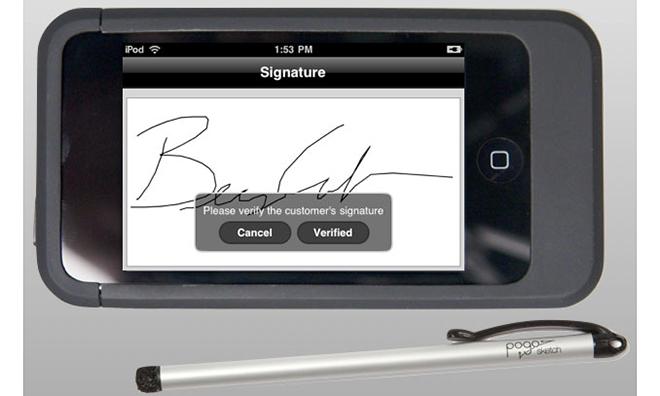Class action suit claims Apple Store POS system discriminates against visually impaired
A class action lawsuit filed last week asserts Apple's point of sale system discriminates against visually impaired customers as the specialized iPod touch-based equipment is impossible to operate without help from a staff member.
The complaint, lodged with a Florida district court last Friday (via TUAW), asserts Apple's deployment of iPod payment systems is in violation of the American with Disabilities Act (ADA), which calls for retail outlets to provide a POS system independently accessible by a blind customer. More specifically, plaintiff argues that entering a secret PIN when paying with a debit card is nearly impossible without guided help.
Defendant's use of flat touch screen POS Devices discriminates against blind and visually impaired consumers in violation of the ADA by denying them full and equal enjoyment of the goods, services, facilities, privileges, advantages, or accommodations at Defendant's stores.
Central to the plaintiff's argument is the fact that other businesses use POS systems that feature tactile key inputs, some of which have braille or other raised markings to denote numbers. Because Apple uses a flat capacitive touchscreen, visually impaired customers cannot independently navigate the on-screen UI when entering a debit card PIN.
At many Apple Stores, employees carry around EasyPay iPod POS systems that feature a magnetic card reader and integrated barcode scanner.
While Apple has baked in various accessibility options into iOS, including VoiceOver, the features are largely audio-based, meaning they are useless in a secure POS environment. It is possible that headphones could be used to direct visually impaired users during the payment process, though the solution would likely be too cumbersome for Apple's liking.
Unlike other suits brought against Apple of late, the class action is not seeking damages. Instead, the suit is looking to have Apple's POS systems updated or replaced to be in compliance with ADA regulations.
As is the norm in such cases, plaintiff also seeks to be recompensed for costs associated with the suit and payment of reasonable attorneys' fees.
 Mikey Campbell
Mikey Campbell











 Malcolm Owen
Malcolm Owen
 William Gallagher and Mike Wuerthele
William Gallagher and Mike Wuerthele
 Christine McKee
Christine McKee
 William Gallagher
William Gallagher

 Marko Zivkovic
Marko Zivkovic









